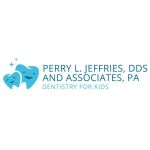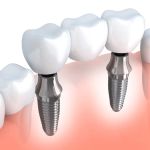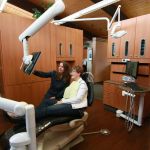Understanding the Importance of Oral Cancer Screenings During Dental Checkups
What is Oral Cancer and Why is Screening Crucial?
Oral cancer is a significant health concern that affects thousands of people each year. It can develop in any part of the mouth, including the tongue, lips, cheeks, gums, and even the throat. Early detection of oral cancer is crucial because it increases the chances of successful treatment and survival. While many people are aware of common health screenings such as those for breast or prostate cancer, oral cancer screenings during routine dental checkups often go overlooked. In this article, we’ll explore the reasons why oral cancer screenings are essential during your dental visits and how they can save lives.
The Role of Dentists in Oral Cancer Detection
One of the key reasons dental checkups are so important is that your dentist is well-positioned to spot signs of oral cancer. Dentists are trained to look for abnormalities in the mouth, including suspicious lumps, bumps, or lesions that could indicate the presence of cancer. These screenings are typically quick and non-invasive, involving a visual inspection of the mouth as well as a physical examination. In some cases, dentists may also feel the lymph nodes in the neck to check for any swelling that could indicate an issue.
Common Symptoms of Oral Cancer
While most oral lesions are not cancerous, it’s important to recognize the signs and symptoms that may indicate a problem. Some common symptoms include:
- A persistent sore in the mouth or on the lips that doesn't heal.
- Red or white patches in the mouth.
- Unexplained bleeding in the mouth.
- Painful swallowing or difficulty swallowing.
- Changes in speech or hoarseness.
- A lump or thickening in the cheek or neck.
If you experience any of these symptoms, it is important to seek medical attention right away. While these symptoms can be caused by other conditions, they should never be ignored.
Why Routine Screenings Matter
One of the most significant benefits of routine oral cancer screenings is the potential for early detection. When oral cancer is caught in its early stages, the chances of successful treatment and recovery are greatly improved. However, when oral cancer is diagnosed in its later stages, it may have already spread to other parts of the body, making treatment more complex and less effective.
Research shows that the 5-year survival rate for individuals with oral cancer increases dramatically when the cancer is detected early. This is why it’s essential to make regular dental checkups a priority, even if you don’t have symptoms of oral cancer. Dentists have the experience to identify abnormalities and can refer you to specialists if necessary.
How Often Should You Get Oral Cancer Screenings?
According to the American Dental Association (ADA), oral cancer screenings should be a routine part of every dental checkup, typically occurring every 6 to 12 months depending on your personal health and risk factors. However, if you smoke or use tobacco products, have a family history of oral cancer, or drink alcohol excessively, you may need more frequent screenings. Discuss your individual risk factors with your dentist to determine the right schedule for you.
What to Expect During an Oral Cancer Screening
Oral cancer screenings are typically part of your regular dental checkup. The procedure is simple and involves the following steps:
- Visual Inspection: Your dentist will examine the inside of your mouth, including your lips, cheeks, gums, tongue, and the roof and floor of your mouth, looking for any unusual spots, growths, or sores.
- Physical Examination: Your dentist may gently feel the inside of your mouth and the sides of your neck to detect lumps or changes in tissue.
- Additional Testing (if necessary): If anything unusual is detected, your dentist may refer you for a biopsy or further testing to confirm the diagnosis.
The entire process takes only a few minutes, and it could be life-saving. It’s a small investment of your time with the potential to make a significant difference in your health.
Other Preventive Measures for Oral Health
In addition to routine screenings, there are other preventive measures that can help reduce your risk of oral cancer. These include:
- Avoiding tobacco: Smoking and using smokeless tobacco are the leading risk factors for oral cancer. Quitting can significantly reduce your risk.
- Limiting alcohol consumption: Excessive alcohol use increases your risk of developing oral cancer, especially when combined with tobacco use.
- Maintaining good oral hygiene: Brushing and flossing regularly and visiting your dentist for cleanings and checkups help keep your mouth healthy and free from infection.
- Eating a healthy diet: A diet rich in fruits and vegetables can boost your immune system and provide protection against cancer.
By adopting these habits, you can reduce your overall risk of oral health issues, including oral cancer.
Why You Should Book Your Next Dental Checkup Today
As we’ve seen, oral cancer screenings are a simple and essential part of maintaining good health. While oral cancer can be a serious condition, early detection through regular screenings can lead to better outcomes. Don’t wait for symptoms to appear—schedule your next dental checkup today, and talk to your dentist about the importance of oral cancer screenings.
At Dentistry Toothtruth, we believe that taking care of your teeth and oral health is one of the best investments you can make for your long-term well-being. For more information on oral health and preventive care, visit our website or schedule an appointment with one of our experienced dental professionals today.







 Perry L Jeffries DDS and Associates PA - Raleigh2.0 (53 review)
Perry L Jeffries DDS and Associates PA - Raleigh2.0 (53 review) Almond Dental Maple Grove4.0 (413 review)
Almond Dental Maple Grove4.0 (413 review) Waterford Dental Health4.0 (1118 review)
Waterford Dental Health4.0 (1118 review) Bismarck Advanced Dental and Implants4.0 (657 review)
Bismarck Advanced Dental and Implants4.0 (657 review) Chalet Dental Care5.0 (739 review)
Chalet Dental Care5.0 (739 review) Straumann USA LLC3.0 (10 review)
Straumann USA LLC3.0 (10 review) The Importance of Oral Health Education During Pregnancy for a Healthy Pregnancy
The Importance of Oral Health Education During Pregnancy for a Healthy Pregnancy Best Tips for Brushing Your Teeth Properly for Healthy Gums: Essential Techniques for Oral Health
Best Tips for Brushing Your Teeth Properly for Healthy Gums: Essential Techniques for Oral Health Why Skipping Dental Checkups Can Lead to Bigger Oral Health Problems
Why Skipping Dental Checkups Can Lead to Bigger Oral Health Problems Advantages of Porcelain Dental Restorations
Advantages of Porcelain Dental Restorations How Can Diabetes Cause Tooth and Gum Problems? Preventing and Managing Oral Health Issues
How Can Diabetes Cause Tooth and Gum Problems? Preventing and Managing Oral Health Issues Healthy Habits for Promoting Good Oral Health and Hygiene: Tips for a Healthy Smile
Healthy Habits for Promoting Good Oral Health and Hygiene: Tips for a Healthy Smile